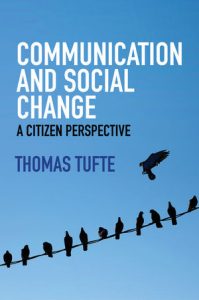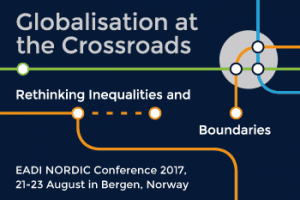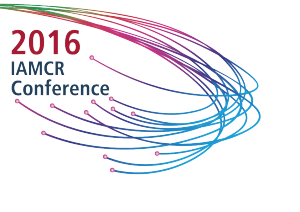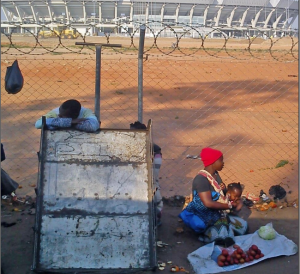PhD defence: Jessica Gustafsson
Jessica Gustafsson defends her PhD thesis “Voicing the Slum. Youth, Community Media and Social Change in Nairobi”, 8 June 2012 at 10:00. Venue: JMK, Stockholm University, Karlavägen 104. Opponent is Helge Rønning, Oslo University. Ørecomm co-director Thomas Tufte was co-supervisor of the project. Jessica Gustafsson participates in Ørecomm.
Summary: Since late 2006, several small media projects have emerged in the slums of Nairobi with the aim to counterbalance the ignorance from mainstream media, provide the slums residents with news, information and an opportunity to voice their needs and discuss relevant issues. These media are best-labelled community media, since their main concern is to serve the interests of the community, in this context the slums. The aim of this project is to assess the potential impact community media have on the community in which they operate. Moreover, it considers the role community media play in promoting community development and democracy, especially in relation to young people living in the slums of Nairobi. Through ethnographic fieldwork in Nairobi (January 2007 to April 2010) including interviews with producers and audience, the study not only maps the establishment of the community media landscape in the slums of Nairobi but the advent of community broadcasting. The study reveals that community media and community radio in particular play an import role in the local youth’s identity construction. By promoting a “slum identity” and ascribing to it positive connotations they help the youth strengthening a sense of pride in who they are and where they come from. Moreover, community media and especially community broadcasting provide the audience with information and a platform for debate where the community can interact directly or indirectly with civil society group, local power holders and experts whether in health, law and finance. This can improve the living situations of the audience but also their engagement as citizens. On a macro level, community media’s biggest contribution to social change is their proactive work to combat tribalism by encouraging their audiences to perceive themselves as Kenyans rather than clinging on to identities based on tribal belonging, which is further reflected in their use of Swahili. The political economy of community media is the biggest challenge that prevents the media projects from fully fulfilling their objectives and being a progressive force for social change. The weak financial situation not only affects their output negatively, it makes them dependent on external funding and (mis)use youth as unpaid labour.
 New PhD opportunities at the University of Leicester
New PhD opportunities at the University of Leicester Call for Abstracts: New Directions in Media, Communication and Sociology (NDiMS) Conference
Call for Abstracts: New Directions in Media, Communication and Sociology (NDiMS) Conference Ørecomm Team to Gather at the University of Coimbra
Ørecomm Team to Gather at the University of Coimbra “Communication and Social Change – A Citizen Perspective” Published
“Communication and Social Change – A Citizen Perspective” Published C4D Network to Sum Up Global Communication for Development Practice
C4D Network to Sum Up Global Communication for Development Practice Entering Media and Communication into Development Conferences?
Entering Media and Communication into Development Conferences? IAMCR Conference 2016: Communication for Development Highlights
IAMCR Conference 2016: Communication for Development Highlights Glocal Classroom Revisited – Storytelling & Social Change Leicester-Malmö
Glocal Classroom Revisited – Storytelling & Social Change Leicester-Malmö I EvalComDev International Conference: Call for Papers
I EvalComDev International Conference: Call for Papers Looking for Media and Communication in Development Conferences: Devres 2016
Looking for Media and Communication in Development Conferences: Devres 2016